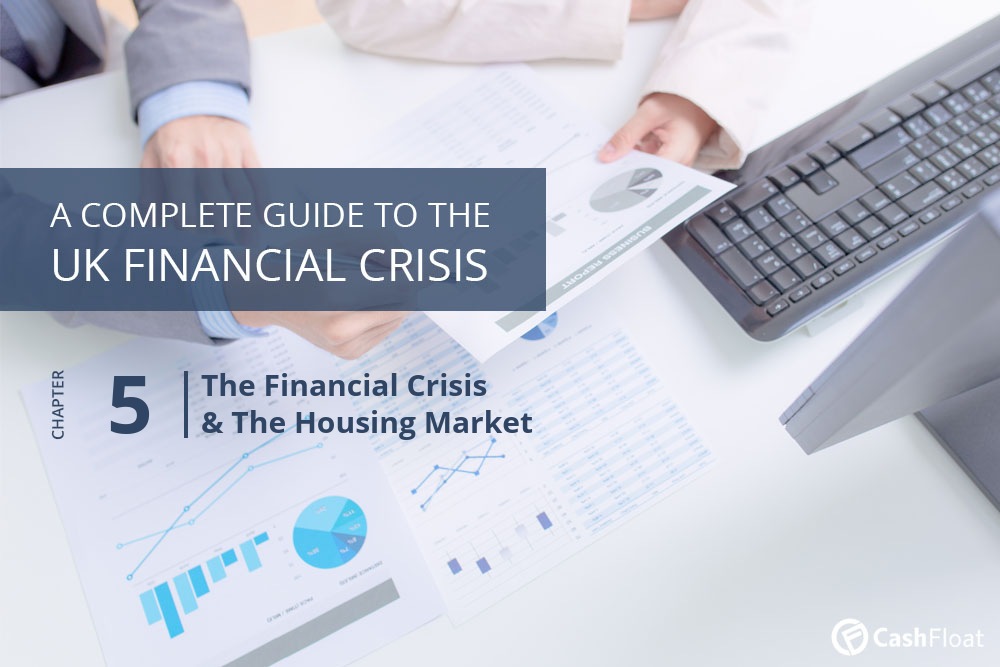The financial crisis’s effect on the housing market was perhaps the most pronounced. Cashfloat, a responsible online lender examines the effects of the financial crisis on housing in the UK.

Story highlights
- Mortgages for 100% of the value of a house were commonplace before the credit crunch
- The overall trend in the housing market is still subdued, and homeownership has seen a decline since 2003.
The Housing Market
Housing in the UK consists of four main categories:
- Privately owned houses and flats
- Rented properties owned by the local councils
- rentals by private landlords
- Housing association managed properties
The privately-owned houses are usually freehold. In contrast, flats and apartments are generally leaseholds, meaning the occupier does not own the land but leases it for a long time.
Typically, privately rented properties are on a six-month lease which the renter can renew. The housing associations allocate council properties to renters who rent these properties until they die. Housing association properties provide affordable options to UK citizens. Some people buy their properties through housing associations while others rent.
In the UK, the housing market is critical as it reflects the wealth of the country. Any striking changes in house prices can have long term effects on the economy. Therefore, a rise in house prices has a positive impact. A sudden fall in house prices has a negative effect. Supply and demand, interest rates, building legislation, land availability and the cost of labour and materials all determine house prices. When house prices are on the rise, builders construct more homes and there is a greater supply. But, when house prices start to fall, developers hold back in production.

Home Ownership
Ever since the 1980s, homeownership has been at the heart of government policy. Many councils sold off council houses at low subsidised prices. They encouraged all age groups to buy their own home. There was a constant supply of starter homes which were directly designed to appeal to single career orientated young people. The idea of renting a property was considered a waste of money.
When the banking regulations were relaxed, and prices were booming, obtaining a mortgage became quite easy. Banks were happy to accept self-certification, so you could tell them how much you could afford instead of the reverse. Mortgages for 100% of the value of a house were commonplace. If you could not scrape up a deposit, some developers would give you the deposit and add it on to the price of the house. This contributed to inflated artificial values for homes. Everyone thought that house prices would continue upwards, so it did not appear to be a problem.
The boom in the UK economy was such that many people took equity out of their homes to pay for home improvements or other luxuries like a new car or caravan. Interest rates were steady, and house prices were continuing to rise. No one considered this type of behaviour risky at all. However, when the financial crisis migrated from the US to the UK in 2008, it had an immediate effect on the housing market.

Mortgages and House Prices
As soon as banks stopped lending to each other there was a credit crunch. This meant that mortgages which had previously been very easy to get were suddenly in short supply. The era of the 100% mortgage was over, and banks would only consider granting a mortgage if the borrower had a substantial deposit and good credit. Dabbling in the toxic subprime market left banks teetering on the edge of failure. Once the government bailed out these institutions with taxpayers money, the onus was on the banks to be much more careful about who could borrow money.
Bank of England Drops Interest Rates
In an attempt to stop the economy from taking a massive dip into recession, the Bank of England dropped its interest rates. This was an excellent move for those people who had already bought a house. The downside was that these properties were suddenly worth about 25% less than what they had paid. However, for people looking to buy a house, mortgages were hard to come by. Too few mortgages meant that many people could not borrow. Consequently, housing prices dropped.
People who were desperate to sell reduced the price as low as they could, but there was little demand in the private sector housing market. On the flip side, there was a rising demand for rented properties, and rental prices rose. Tenants found themselves paying higher rent with fewer alternative options. They could not get a mortgage to buy a house, and rent was going up. Add in the redundancies that characterised the financial crash, and it is clear that the housing market took a terrible hit. Layoffs meant fewer people were willing or able to move homes and the demand for private home sales had dried up.

The depreciation of house prices
There was also decreasing demand for buy-to-let houses which had been so successful in the preceding years. Stricter mortgage applications caused house prices to drop and left many property speculators with less valuable houses. Unless owners were able to find long term tenants, they found themselves with unpayable mortgages and properties that no one wanted to buy. Many lost all the money they had invested in a booming property market that no longer existed.
The downturn in the economy of the UK was addressed with government policies with positive results. However, the overall housing market has still not fully recovered. Although house prices in London and the South East have made a decent recovery, prices in the rest of the country have still not returned to pre-crash levels.
There has been an increase in repossessions and housing associations. These institutions have had to put resources into collecting debts instead of investing in more social housing. The collapse of the housing market meant that developments halted, leading to more redundancies in the construction and other related industries.

The Importance of House Prices
The need for affordable housing in the UK is ever-present. Since the 2008 financial crash, there is a high demand for subsidised housing. Still, the government has been unable to deliver what the nation needs. Regeneration schemes in areas like Liverpool also slowed down. They had previously had a lot of success renovating old terraced properties and reinvigorating run-down areas of the city. With blocks of empty flats still unsold, they have shifted their focus to building smaller houses on greenfield sites (sites that had never been built on before). Previously, housing associations built large occupancy blocks of apartments exclusively on brownfield sites in towns and cities.
House prices are a key driver for the UK economy. The latest figures show that homes in London are now slipping back from their peak value. Homes in the capital have become unaffordable. Because of the lower stamp duty tax, there has been a slight increase in home buying. Also, interest rates are still very low for mortgages (if you can get one). The overall trend in the housing market is subdued, and homeownership has seen a decline. Levels are at the lowest they have been in 30 years. In addition, when compared to the average wage, house prices are still very high. The devastation of the financial crisis has had long term effects on the housing market, which may continue for years to come.



